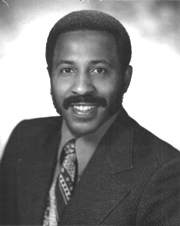(Baltimore) I think I became aware of Frank Conway, Sr. in
the mid 70’s while waiting at the corner of Liberty Heights and Hilton Avenues for
the number 51 bus. There screaming for attention was a
yellow banner with black
lettering stretching nearly the entire length of his fence, “Elect Frank
Conaway” It was a familiar banner every election season (changing offices he
was seeking) and grew to include the entire Conaway clan. If you drove by at
the appointed time you might see him waving and asking for your support. On February 15, 2015 Frank Senior “went
silently into that good night” never to emerge again to ask that we do more for
the city he loved.
He is remember by his wife, his son and daughter, and
extended family as the patriarch of a political family that rivaled the
Mitchell’s. Their linkage to charm city was homegrown. Coming of age during a
time when political power was denied to a Blacks.
The Emergence of Black
Political Power in Baltimore
Frank Conaway, like many men of his time served in the
military and took advantage of the GI Bill to get a degree from Morgan State
College in 1960. He becomes a Math teacher at Booker T. Washington Junior High
School.
These are heady times. The right vote in Baltimore comes in
with a bang. Milton Allen becomes the cities first elected leader securing the
position of State’s Attorney. The next big push is city council and the state
house. Under the tutelage of William “Little Willie” and Victorine Adams they
showed Conaway the ways of Metro Democratic Organization.
The Metro Democratic Organization was different from the “Goon
Squad.” Formed by Rev. Vernon Dobson, Larry Gibson, Clarence (Sr.) and Parren
Mitchell, and several other community leaders this group was about planning
Black political strategy. They used churches, the NAACP, Afro and a homogenized
community centered near the Druid Hill Community.
Conversely, the Metro Democratic Organization was into
patronage and helping those get jobs in city government. The group was about
making change on the ground/street. No need for college degree to make change. For
the high minded individuals Adams connection to unsavory characters was
questioned. Make no mistake both groups were about bring change.
 By 1970, Conaway used his connection to win a seat in the
Maryland House of Delegates and eventually leading the Legislative Black
Caucus. He would leave in 1975 but, returned in 1979.
By 1970, Conaway used his connection to win a seat in the
Maryland House of Delegates and eventually leading the Legislative Black
Caucus. He would leave in 1975 but, returned in 1979.
During this period of inactivity he watched Harold
Washington become Mayor of Chicago and that gave him "a renewed confidence in the political process."
He would challenge Mayor William Donald Schaffer for his post. Conaway would
drop out of the race.
During the 80’s Conaway seemed to constantly be under legal scrutiny.
He beat back charges that his handing out of smoke detectors before an election
was illegal. The Baltimore State Attorney also investigated charges about his
skimming of insurance premiums turnout to be false.
Public service was a
calling for the West Baltimore native. By 1988 he became the clerk of the Circuit Court for Baltimore
City. He would serve five terms. Between those terms he would run
for Mayor of Baltimore.
Running for Mayor
Conaway would often boast he garnered more votes in the city
than anyone else. He would put that to a test. In 2007, he challenged Mayor
Martin O’Malley’s self-appointed successor Shelia Dixon. It was a crowded field
(eight candidates)
Leading up to the primary (the de facto election for Mayor)
there was talk of whittling the field. The top two candidates were Dixon and Councilman
Keiffer Mitchell. According to reports Conaway initiated phone calls to
convince some candidates to withdraw instead of splitting the vote. He was unsuccessful
but, was convinced to support Mitchell. The date of the only televised debate
was August 27, 2007 at Maryland Public Television.
I was on the panel with Jane Miller of WBAL TV to question
the participants. Prior to the event, we go over areas we’d like to cover so we
don’t repeat subjects. It was during this process we learned that Conaway may
use this opportunity to endorse Mitchell. We were perplexed how it would be
handled.
Jeff Salkin, the moderator, asked for opening statements
from each candidate. When it was Conaway’s turn, he asked to make a statement.
During his time he threw his support to Mitchell. Salkin then ask Conaway to
step away from the podium and asked the other candidate to move over. The
former candidate asked, “Are you throwing me off the debate?” “No, Mr. Conaway,
you threw yourself off the debate,” says the moderator. It was a bizarre beginning
to a debate.
This would not be the last time we would hear from Conaway
as a Mayoral Candidate he reprises this role again in 2011. I ran into him during a radio interview and the guy who was
dressed to the “nines” call me Mr. Robinson. I told him that wasn’t necessary.
He pulled me to the side and wondered aloud, “Why the city would keep electing
leaders who didn’t care about the city.” I couldn’t answer the question.
Frank Conaway Sr. came of age during a time when some African-Americans
were called “salt of earth.” They made their way when there were few options. He
served his country and community in an honorable way. A true public servant in
every sense of the work. “Rest well humble servant.”
Charles Robinson, III
